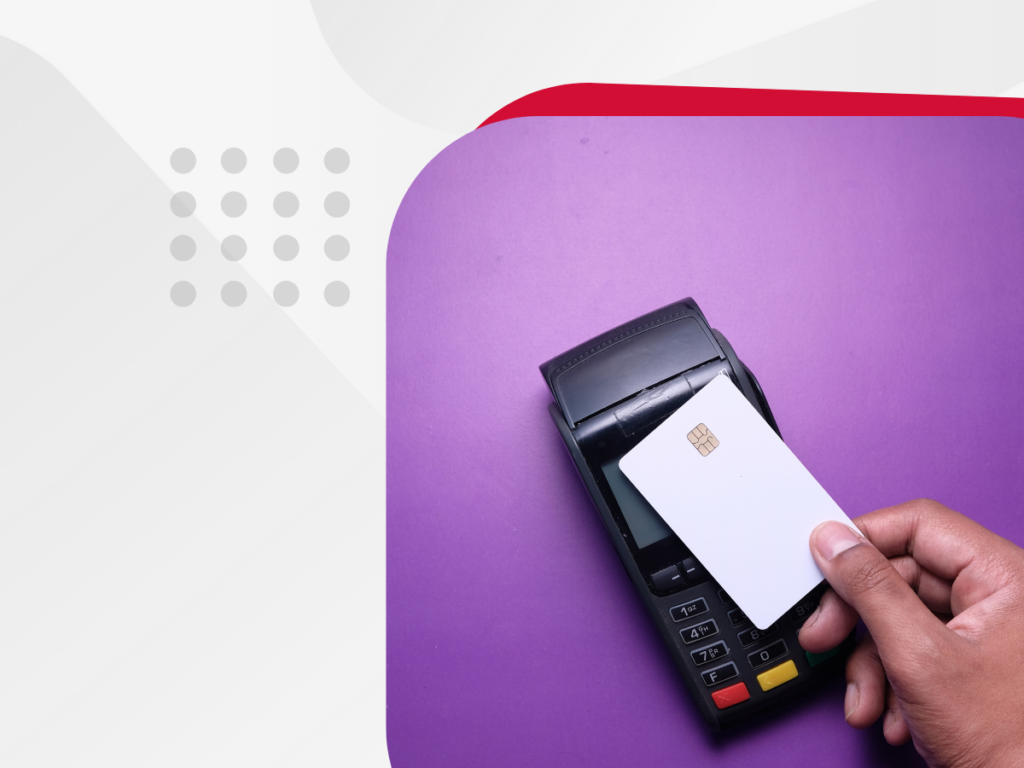
What is the difference between Afterpay and a credit card?
Afterpay is leading the charge for Buy Now, Pay Later (BNPL) service providers in Australia. It offers customers the chance to pay off a purchase in four instalments, paid fortnightly. A credit card, by contrast, gives users access to a continuous active line of credit, with the net total paid in bulk at the end of the statement period. Each product has its benefits and drawbacks, making them suitable for different purchasing needs.
What is Afterpay, and how does the Afterpay card work?
Afterpay allows consumers to make a purchase today that they can repay in smaller increments without interest charged. Afterpay gives consumers access to interest and fee-free (if paid on time) Point-Of-Sale loans. They cover some or all the cost of a purchased item, and you pay them back over four equal fortnightly instalments.
It differs from the traditional concept of layby in that you can use the purchase immediately even though you’re yet to pay for it – hence the term Buy Now, Pay Later. If you’re looking for an alternative to Afterpay in Australia, they are not the only operators in this space. Bank, Visa, and Mastercard Buy Now, Pay Later credit card products are also available, as well as other Afterpay-type companies like Klarna or Zip.
Afterpay charges vendors a fee for every sale transacted using its service, forming the bulk of its revenue. In addition, it collects late fees from users if they fail to make timely payments. New users typically need to front 25% of the purchase at the point of sale, although this may change if using the loyalty program: Afterpay Pulse. You open the Afterpay card app in your digital wallet, just as with a credit or debit card, and can pay at participating businesses via their point-of-sale (PoS).
At the time of writing, Afterpay payment options have a maximum purchase limit of $1500 and a maximum account limit of $2000. New users will generally start with lower limits than these, which will increase with positive payment behaviour. Some vendors may apply their own caps regarding the use of Afterpay. This relatively low max limit means that Afterpay is only suitable for certain purchases.
Afterpay FAQ
- How do I get an Afterpay card? Sign up via their website or app.
- Where can you use an Afterpay card? See a list of participating retailers here.
- How to view my Afterpay card number? On the Afterpay app on your digital device.
- How do I get an Afterpay statement? On the Afterpay app on your digital device.
- Can you split the payment with Afterpay? Yes, you can make custom payments in the Afterpay app.
What is a credit card, and how does it work?
A credit card offers a line of credit to the cardholder up to a set credit limit. What you choose to purchase with that card is up to you (depending on the terms and conditions of the product). The balance of the credit account needs to get paid in full by the end of the statement period or risk accruing interest. There may also be upfront and ongoing fees and costs that apply.
Credit limits offered on credit cards are typically higher than Afterpay’s spending limits. The total amount you can borrow with a credit card can vary from $1000 to $100,000+, depending on your income and the type of card. This difference widens the scope of the number of purchases you can make with a credit card and the value of the items you buy, as well as the debt you could accrue.
Credit cards are accepted as a payment method by most businesses across the globe. Alternatives to credit cards may not allow the same flexibility.
How are they similar?
Afterpay and credit cards are similar in that they both facilitate purchases without needing cash on hand at the time. Purchases made with either can be interest-free if paid off on time. The differences lie in the associated fees and costs, rewards programs, and the application process.
What are the differences between Afterpay vs a Credit Card?
Before we begin, it’s important to remember that many kinds of credit cards are available on the market. The fees, purchase rate, transaction rates, and other factors can all differ significantly from one credit card product to the next. Due to this variance, you should always conduct your own research before determining which product will be best for you.
The information provided is correct as of 11/5/2023.
Application Requirements
Afterpay
- No hard credit enquiry
- Requires a debit or credit card to link
- Sign up via the Afterpay app or website
- Users must be over 18
- Identity verification via Driver’s Licence, Medicare Card, Aus Passport or International Passport
Credit cards
- Typically, a hard credit enquiry
- Proof of income
- Employment status, marital status, residential status
- Identity verification via documents such as a licence or passport
Which is better?
A significant difference is the hard credit check on your personal credit file for a credit card vs Afterpay. The credit check itself can affect your credit score, rendering it harder to secure credit if your application fails. That said, it works both ways. Positive payment behaviour with a credit card can improve your credit score and creditworthiness over time as you prove you can meet your obligations. Because there is no Afterpay credit reporting, it has no impact on your credit scores, one way or the other.
Fees, Interest and Other Costs
Afterpay
- Zero signup fee, monthly account fees, or establishment fees
- Purchases below $40 – one late fee capped at 25% (max $10)
- Purchases above $40 – late fees capped at 25% of the purchase price, or $68, whichever is less.
Credit Card
- Annual fee: $0 – $250
- Purchase rate: 13.74% – 19.99%
- Balance transfer: 21.49%
- Late Payment fees: $5 – $35
- Cash Withdrawal fee: $0 – $6
- Over the credit limit fee: $10 – $40
Which is better?
As you can see, there are more costs associated with credit card products, although that will depend on the credit card you choose, as low-rate and low-fee, budget-friendly credit card options are available. Plus, if you always pay your card balance in full each statement period, you may also never pay interest – just like Afterpay. The impact of interest on purchases depends on your habits as a credit account holder. If you pay your card bill on time, you can avoid interest stacking up.
Rewards Programs
Afterpay
- Pulse Rewards Program
- Every eligible, on-time payment earns the user 10 points
- Afterpay rewards points offer access to exclusive product deals, payment flexibility, early sale access and buy now pay later gift card options
Credit Cards
- Frequent flyer rewards
- Product deals and discounts
- Concierge services at events
- Discounts on account fees
- Extra linked cards
- Event pre-sale or priority access
- VIP Seating
- Account and identification fraud protection
- Travel insurance packages
- Warranty extensions
- Guaranteed pricing schemes
Which is better?
Credit cards may be more flexible and varied in rewards, perks and customer satisfaction programmes. Many credit cards focus on reward programme delivery as a priority incentive for customers. A credit card may be more suitable if you seek to boost your frequent flyer points or leverage a rewards programme for insurance or discounts.
Comparison of Afterpay and Commonwealth Bank Credit Card
To help you in your comparison, here is how Afterpay stacks up to a Platinum credit card from Australia’s biggest bank, Commonwealth Bank. Keep in mind that this is for demonstrative purposes only, and different credit cards will provide different results.
| AFTERPAY | COMMONWEALTH BANK (Platinum Awards) |
|
|---|---|---|
| Annual Fee | $0 | $249 |
| Purchase Rate | 0% | 20.24% p.a. |
| Late Fees | Up to $68 | $20 |
| Statement Period | Instalments fortnightly over six weeks | 55-days interest-free |
| Spending Limit | Up to $1500/item and $2000 account balance | Minimum credit limit $6000, no set maximum limit. |
| Eligibility | Over 18 | Over 18, Australian citizen or resident, minimum income may apply. |
| Rewards | Pulse Points programme, with exclusive deals and rewards. | Rewards available through CBA Premium Awards, including extra 80,000 points on sign-up at time of writing. Domestic and international travel insurance, extended warranty, VIP seating, concierge, special event access, purchase protection insurance. |
Source: Afterpay.com, Commbank.com.au. Data accurate as of 12/05/2023.
Which option is best for me?
As outlined above, Afterpay and credit cards suit different needs. If you’re still wondering, “Is Afterpay good for me?”, consider what you plan to buy. Afterpay is a practical, accessible and easy solution for customers looking to spread the weight of various one-off purchases, such as a new outfit or a small appliance. Credit cards allow for higher spending but have more hoops to jump through in the application process. Awards aren’t enough; there’s no use looking for the winning Sydney credit card. Each product caters to different customers and it’s crucial you compare your options carefully.
The most important thing is that you assess your financial situation to make sure that whichever you use – you can make repayments. Defaulting on a credit card or Afterpay bills can lead to additional cost and stress, which you should avoid. Once you’re in a debt hole – it can be tough to get out, and you can’t pay off a credit card with a different credit card. Check your personal budget to determine what payment obligations you can meet and be sure to account for some unknown costs that may appear in the future.
Credit check trading partners with the reporting suite from CreditorWatch
Just as you must not default on a credit card or Aftepay bills, trading partners must not default on payments to your business. You need that cash flow to keep the lights on, pay overheads and suppliers, and take the next step for your operation.
Risky debtors threaten your ability to accomplish your business goals. Take advantage of the Credit Reporting suite and RiskScore from CreditorWatch and safeguard your business today. Search any Australian company by its name, ABN, or ACN and let our sophisticated software analyse its creditworthiness; its capacity to pay on time and in full.
RiskScore analyses complex data to deliver a simple score between 0-850. The higher the score, the more creditworthy the company. We then allocate a payment rating between A1 and F to advise you on the appropriate credit actions to take. You can monitor any trading partners with our integrated 24/7 Monitoring and Alerts to ensure important information doesn’t change behind your back. You’ll get emailed immediately once a change is flagged, offering you time and space to respond and prioritise collections.
With the power of the CreditorWatch suite, you can safeguard cash flow, trade with creditworthy partners, and unleash your potential.

Get started with CreditorWatch today
Take your credit management to the next level with a 14-day free trial.

